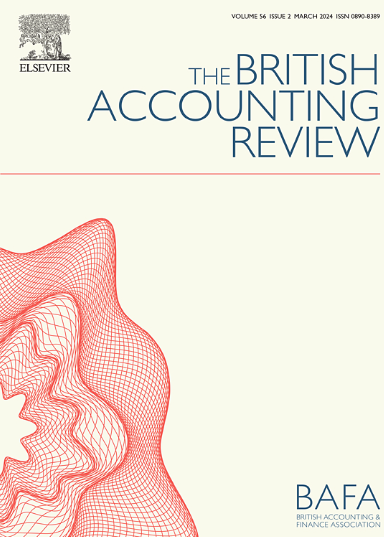Quid pro quo? Local government debt and corporate tax avoidance
IF 5.5
3区 管理学
Q1 BUSINESS, FINANCE
引用次数: 0
Abstract
This study examines the effect of local government debt (LGD) on corporate tax avoidance using a sample of Chinese-listed firms from 2007 to 2019. We find a negative relationship between LGD and tax avoidance only in the municipal state-owned enterprises (SOEs) controlled by the municipal government, suggesting that municipal officials focus on municipal SOEs to raise tax revenues to alleviate debt pressures. Further discussions show that the negative effect of LGD on municipal SOEs' tax avoidance is pronounced in politically connected managers, cities with worse fiscal situations and only present at the early phase of officials' tenure but insignificant later. We examine the economic consequences of politically driven tax planning and find that municipal SOEs with lower tax avoidance subsequently receive more government contracts as favor returns. Such favor exchange changes the distribution of current and future cash flows of the municipal SOEs, which are mainly determined by adjusting the composition of current accruals (i.e., more income-increasing earning management) and cash flow items (i.e., less tax avoidance). This study sheds light on the “two-way favor exchange” between governments and firms and provides implications for understanding local government leaders' heterogeneous incentives for tax enforcement and firms’ competing incentives for tax avoidance.
交换条件?地方政府债务与企业避税
本研究以 2007 年至 2019 年的中国上市公司为样本,研究了地方政府债务(LGD)对企业避税的影响。我们发现,只有在市政府控制的市属国有企业(SOE)中,LGD 与避税之间存在负相关关系,这表明市政府官员关注市属国有企业,以提高税收收入来缓解债务压力。进一步的讨论表明,LGD 对市属国有企业避税的负面影响在与政治有关联的管理者、财政状况较差的城市中更为明显,并且只出现在官员任期的早期阶段,但在后期并不显著。我们研究了政治驱动的税收筹划的经济后果,发现避税率较低的城市国有企业随后会获得更多的政府合同作为优惠回报。这种人情交换改变了市属国有企业当前和未来现金流的分配,而现金流主要由调整当前应计项目(即更多的增收收益管理)和现金流项目(即更少的避税)的构成决定。本研究揭示了政府与企业之间的 "双向利益交换",并为理解地方政府领导对税收执法的异质性激励和企业对避税的竞争性激励提供了启示。
本文章由计算机程序翻译,如有差异,请以英文原文为准。
求助全文
约1分钟内获得全文
求助全文
来源期刊

British Accounting Review
BUSINESS, FINANCE-
CiteScore
8.60
自引率
3.90%
发文量
39
审稿时长
76 days
期刊介绍:
The British Accounting Review*is pleased to publish original scholarly papers across the whole spectrum of accounting and finance. The journal is eclectic and pluralistic and contributions are welcomed across a wide range of research methodologies (e.g. analytical, archival, experimental, survey and qualitative case methods) and topics (e.g. financial accounting, management accounting, finance and financial management, auditing, public sector accounting, social and environmental accounting; accounting education and accounting history), evidence from UK and non-UK sources are equally acceptable.
 求助内容:
求助内容: 应助结果提醒方式:
应助结果提醒方式:


